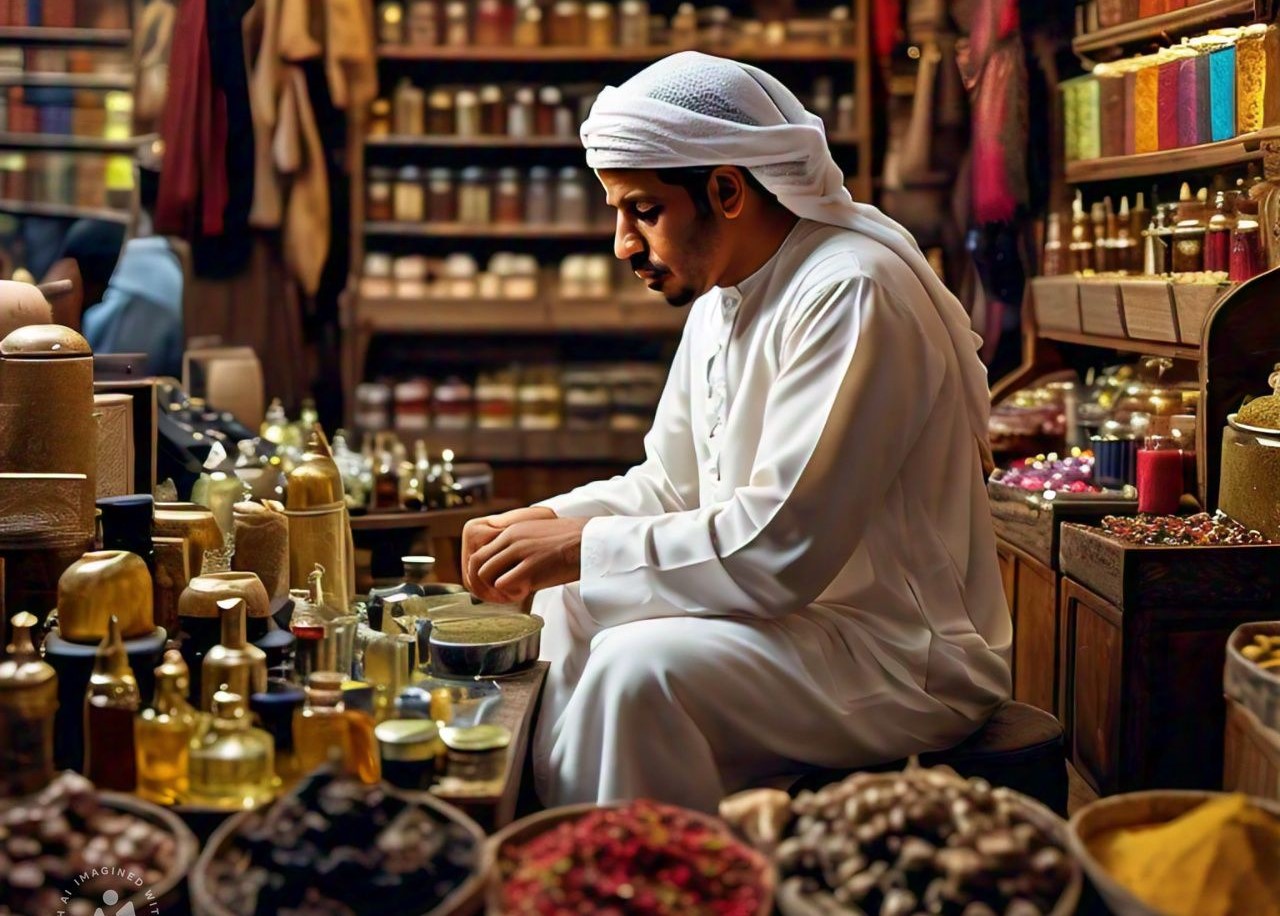
Historical Significance:
Perfumery has long been integral to Arabian culture, with historical records dating back to ancient civilizations such as the Sumerians, Egyptians, and Babylonians. In the Arabian Peninsula, fragrances were not only used for personal adornment but also played a crucial role in social customs, hospitality rituals, and religious ceremonies. The trade of aromatic materials like frankincense, myrrh, and oud (agarwood) flourished along ancient trade routes, establishing the region as a center of perfume production and commerce.
Craftsmanship and Ingredients
Arabian perfumery is renowned for its meticulous craftsmanship and the use of precious ingredients sourced from the region's diverse landscapes. Oud, also known as agarwood, is a cornerstone of Arabian perfumery, prized for its deep, woody aroma and spiritual significance. Other indigenous ingredients include rose, jasmine, saffron, and ambergris, each contributing to the complex and luxurious scents that characterize Arabian perfumes.
Traditional Perfume Forms
Arabian perfumery embraces various forms and applications, from concentrated oils to intricate blends known as attars. Attars are traditional perfumes crafted through steam distillation or maceration of botanicals and aromatic resins, resulting in highly concentrated and long-lasting scents. These perfumes are often worn on special occasions and are cherished for their rich cultural symbolism and craftsmanship.
Cultural Significance
Fragrance holds immense cultural significance in Arabian society, symbolizing hospitality, generosity, and personal adornment. Perfumes are exchanged as gifts during celebrations and social gatherings, reflecting traditions of honor and respect. The use of fragrances extends to cultural practices as well, with incense and perfumed oils being integral to ceremonies.
Modern Influence and Global Appeal
Arabian perfumery continues to influence contemporary fragrance trends worldwide, with renowned perfumers and luxury brands drawing inspiration from the region's olfactory heritage. The popularity of Arabian-inspired perfumes, characterized by rich, complex blends and opulent packaging, underscores the enduring allure of Arabian fragrances in the global market.
Scented Heritage
Arabian perfumery traditions represent a captivating fusion of history, craftsmanship, and cultural expression. Through their aromatic creations, perfumers honor age-old practices while embracing innovation, ensuring that the essence of Arabian fragrances continues to enchant and resonate across generations and borders. As consumers explore these scents, they embark on a sensory journey that celebrates the artistry and heritage of Arabian perfumery.
